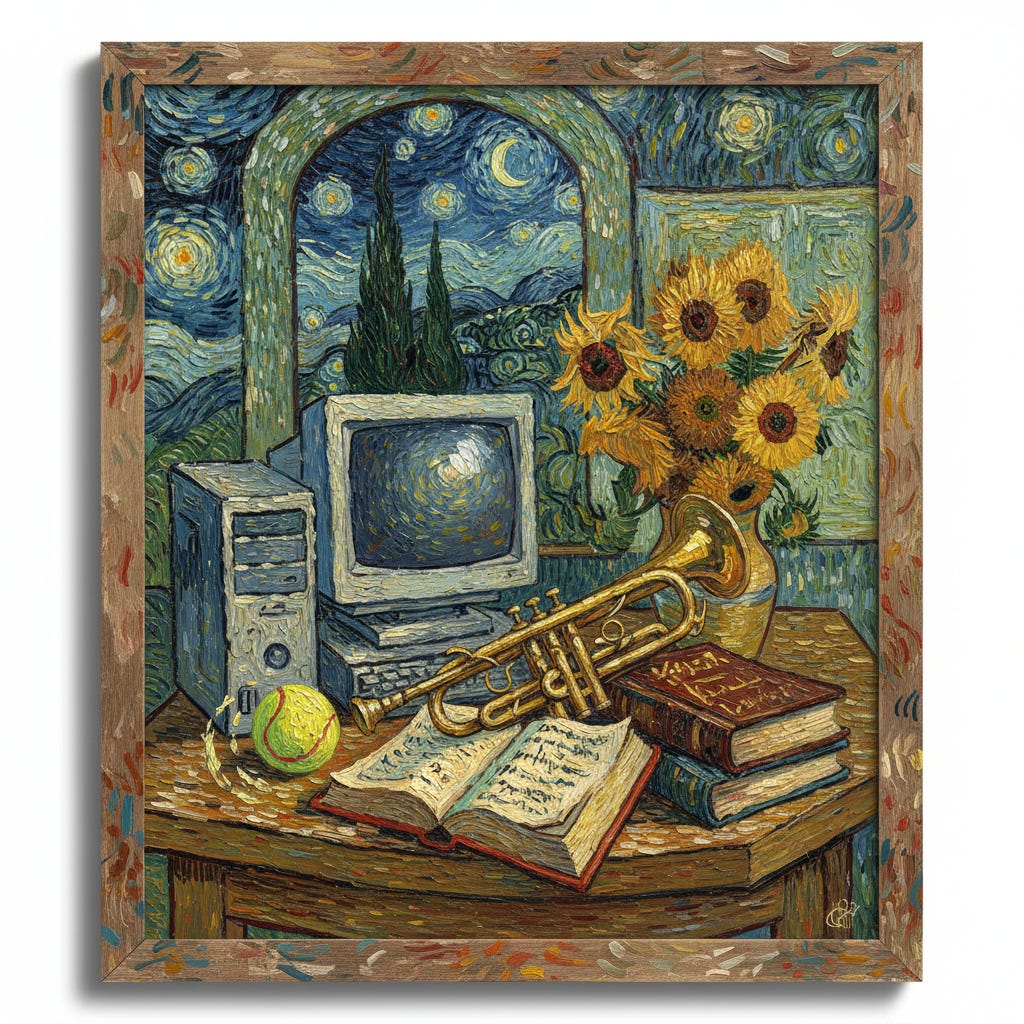Two Long Term Learning Strategies
How can you help someone if you don’t know exactly where he is or where he’s going? That was the problem older musicians faced when I ambushed them with questions in my early twenties.
Back then, learning how to play – how to really play, just like my heroes – felt both impossible and urgently necessary. I was trying to learn so much – my instrument, different chord progressions, different rhythmic structures, my own musical vocabulary. I couldn’t possibly learn it all in an hour, or a day, or even a year. But I desperately wanted to learn – hungry, they called it back then. So when I saw a great player sitting alone at the bar between sets, I’d force myself to walk up and ask, What did you do? What should I do?
I was surprised by how generous these older musicians were. But they remembered how it felt, and they wanted to help…if they could.
Answering my first question was hard enough – who can remember it all? But answering the second was almost impossible. Because I didn’t want to learn to play like them – I wanted to learn to play like me. How could they tell me how to do that, especially if they’d never heard me play?
But it turns out there was an answer to my question – two of them, actually. The two strategies sounded like opposites, but they both worked very well, and I realize now that I heard them many times, expressed in many different ways. I still use them today, as a learner and a teacher.
Strategy #1: Polish.
Just get a little better every day. Improve your tone on a couple notes. Work on slightly faster tempos. Learn how to play over that weird turnaround. It’s like compound interest – after a while, you’ll be amazed by how much you’ve learned.
This approach works very well in test prep. On math and grammar, I don’t care too much exactly what a student is working on as long as 1) it’s very likely to show up 2) the student hasn’t mastered it 3) the student can learn it relatively quickly. Just do something useful – every day, if possible – and your scores will steadily improve.
Other applications:
Learn the piano. I played ~10 minutes per day in the mornings and gradually was able to play ~20 pieces I really liked.
Read hard books. I’ve used this with books that are a little beyond my skill level – just read a page or two really carefully every day, even if it doesn’t all make sense. It’s worked particularly well with academic papers (especially on psychometrics).
Get better at tennis. Don’t worry about whether the other players are better or worse (or if you are just hitting against a wall) – play multiple times a week.
Get more comfortable with AI. It’s hard to predict what it will do well for me – I made a habit of asking a question almost every day for several months and found lots of great use cases.
Strategy #2: Go Deep.
Find one piece you love and learn everything about it. Understand how it moves, why it works. Sing every part while imagining the others. Jump from one part to the next. It will seem like you’re spending way too long on it, but when you finish, you’ll have different ears. Songs you’ve heard many times will sound completely new.
One downside to SAT and ACT math prep is that I rarely get to use the second approach. There are so many different topics, and it’s so hard to predict which ones will yield points, that I rarely want to spend even 10 minutes on any one topic. But I’ve used the second approach quite a bit with younger students. If they’ve never gotten comfortable with proportions or have never learned linear equations or fractions, it’s worth spending a full session on it. Teaching them “close reading” has been very helpful also – we go sentence by sentence, paragraph by paragraph, until they understand every word of a difficult piece.
Other applications:
Computer programming. Once I learned some of the Python basics, I loved Project Euler. It provides progressively harder puzzles. They always took me a really long time to solve, but I learned all kinds of things in the process. I was then able to apply them to Mathchops projects.
Math. Learning math has been so much more fun as an adult, when I can choose my own projects. I still don’t fully understand it, but I enjoyed working through this article about RSA encryption. N
Writing. Every time I’ve spent dozens of hours on an essay or presentation, I’ve felt much more confident about future projects.
Elo Chess ratings. This is another one I don’t fully understand, but reading Elo’s book and some psychometric texts has given me a much better understanding of how tests are made and how to construct the Mathchops question bases.
If you liked this post, please hit the “like” button and/or share it with your friends.


